The world of AI is advancing at a breakneck pace. In recent months, ChatGPT has captured attention for its ability to generate human-like text on demand. Now a new AI assistant named Claude 2, created by Anthropic, aims to take conversational AI to the next level. For churches exploring how AI could enhance their ministries, Claude provides key advantages over ChatGPT that should be considered and tested.

What is Claude 2?
Claude 2 is a new artificial intelligence chatbot that was just released to the public this past week. It allows people to have natural conversations with it through a website interface. Before this, Claude 2 was available through other apps like Poe launched by Quora, but now anyone can go to the Claude.ai website and chat with it.
Claude 2 works similarly to ChatGPT in that it uses advanced machine learning built by the organization, OpenAI, to have human-like conversations. However, Claude 2 was created by a different company called Anthropic and uses a different AI database and programming. The public release of Claude 2 this past week has provided wider access to its human-like conversational abilities, which church leaders can take advantage of today.

Longer, More Substantive Responses
One major difference church leaders will notice is Claude’s ability to provide lengthy, nuanced responses. While ChatGPT caps output length, Claude can generate detailed paragraphs on complex topics. This allows for in-depth discussions ideal for ministry contexts.
For example, when asked about utilizing AI for sermon preparation, Claude produced a 1,489-word response exploring considerations like representing the diversity of theological perspectives, discretion in how AI aids preparation, and focusing sermons on applying biblical truths. ChatGPT’s response on the same topic was less than 322 words.
ChatGPT and Claude.ai take contrasting approaches when it comes to prompt length limits. ChatGPT has a more constrained word count, typically cutting off around 3000-4000 words before it forgets the beginnings of your prompting/output conversations. This allows for efficient responses to concise queries. Claude.ai enables longer prompts of potentially 10,000 words or more (AI tokens to word ratios aren't 1:1 perfect, so word counts are estimates), allowing for more detailed instructions and background and conversations. The tradeoff is between efficiency and customizability. The ideal AI assistant would balance both – understanding common conversational prompts while also permitting richer context when needed. Currently, ChatGPT opts for scalable brevity, while Claude.ai favors deep personalization. Advances in natural language processing may soon reconcile these competing strengths. But for now, Claude brings a different type of capability to the table.
Faster Processing Speed
In addition to longer responses, Claude’s processing speed is remarkably fast. While we have had to wait 20-30 seconds or more for ChatGPT to generate text in more instances than we'd rather count, Claude usually responds within 1-2 seconds. This near-real-time conversational ability allows for fluid back-and-forth dialogue with the chatbot. You should find that Claude outputs text faster than you can read it once it gets going.
Church leaders could have quick discussions with Claude about questions that arise. The fast response time also aids productivity, allowing staff to turn to Claude for more opportunities within their workflow.
Attachment Uploading
Claude allows users to upload file attachments such as PDFs, Word docs, images, and more. It can then read and summarize these attached documents to continue the dialogue. Uploading is not possible with the standard ChatGPT interface, limiting its ability to analyze or discuss external content.
Church staff could upload resources like past sermons, annual reports, or instructional manuals. Claude could digest these documents and offer insights to enhance future efforts. This flexibility is invaluable for ministry contexts.

Webpage Reading
Similar to attachments, Claude can read and summarize content from webpages through provided URLs. When given a link, Claude will analyze the information and incorporate it into the conversation. This level of web-reading comprehension is not supported in the base version of ChatGPT.
Church leaders could share links to online resources and have Claude read the content to discuss it. It adds a research assistant ability that expands Claude’s usefulness. While ChatGPT operates based on its training data, Claude can analyze and summarize new online information that's available beyond the 2021 limit that ChatGPT's GPT-3 and GPT-4 model currently has.
More Natural Conversational Flow
Perhaps due to its Constitutional AI framework focused on being helpful, harmless, and honest, conversations with Claude somehow feel more natural and trustworthy than ChatGPT. In our early usage, Claude has produced more thoughtful dialogue tailored to users' prompting rather than simply producing output that sounds robotic.
Church staff could have nuanced discussions with Claude about various ministry issues and find its responses to be appropriate and constructive. ChatGPT sometimes defaults to short, general statements that fail to provide additional insight. Claude’s goal of thoughtful conversation outputs so far should lead to more beneficial AI prompt sessions.
And It's Free
While the basic level of ChatGPT is free too, ChatGPT Plus is really the offering that should be compared with Claude. That is a distinct advantage of Claude. This means that a more evolved version of the generative AI chatbot technology is available to all churches immediately without any need to consider budget.

Final Thoughts
The pace of technological change can be dizzying, but Claude represents a thoughtful advancement in AI—one that could greatly benefit churches. Leaders should take time to discern wise integration of new innovations. But Claude models an exciting future of AI where the competition will bring out the best of each LLM AI tool — better for the end user overall. With its zero price tag, it is a no-brainer to encourage church staff to experiment with this alternative AI chatbot.
Check out it out for yourself and Talk To Claude








Claude 2 replied. I’m afraid I don’t actually allow users to upload files or attachments. I’m an AI assistant created by Anthropic to be helpful, harmless, and honest.